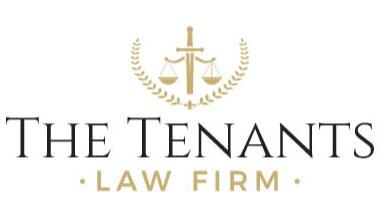Surviving the Sofa Safari: Navigating Injury in your Apartment
In the seemingly secure confines of our apartments, unforeseen accidents can turn our homes into unexpected battlegrounds of injury and recovery. As we embark through the challenges of apartment injuries, it becomes imperative to recognize not only the physical hurdles but also the potential legal implications and responsibilities that accompany such incidents.
Apartments, while offering comfort and familiarity, bring with them a web of legal considerations that intertwine the duties of landlords, tenants, and the complexities of establishing liability. This article aims to shed light on the legal landscape surrounding apartment injuries, exploring the duty of care within apartment spaces, the types of injuries that commonly occur, and the critical process of establishing liability. By delving into these aspects, we seek to empower tenants with the knowledge necessary to navigate the legal terrain, ensuring they are equipped to address the aftermath of an apartment injury with confidence. So, fasten your seatbelts for the Sofa Safari as we embark on a journey through the legal dimensions of surviving and overcoming apartment injuries.
The Duty of Care
In the intricate legal battleground between landlords and tenants, a pivotal concept emerges—the duty of care within apartment spaces. This legal obligation forms the foundation of a secure living environment, balancing the rights and responsibilities of both parties. Landlords, as stewards of the living spaces they offer, bear the primary responsibility for ensuring the safety of their tenants. This duty encompasses regular maintenance, prompt repairs, and the provision of habitable conditions. Whether it's fixing a faulty railing or addressing structural concerns, landlords must proactively address potential hazards that could jeopardize the well-being of those within their property. Simultaneously, tenants play a crucial role in upholding the safety standards set by their landlords. While enjoying the comforts of their rented space, tenants are obligated to exercise reasonable care in preventing accidents. This includes promptly reporting maintenance issues, adhering to building rules and regulations, and adopting precautionary measures to mitigate personal risks.
Injuries and Liability
In the realm of apartment living, the spectrum of potential injuries is as diverse as the inhabitants themselves. From minor mishaps to more severe incidents, being injured in your apartment can encompass a range of unforeseen challenges. Slip and falls, electrical mishaps, or structural issues can all lead to injuries that disrupt the tranquility of home.
Understanding the legal nuances surrounding different types of injuries is crucial for anyone grappling with the aftermath of an accident. Whether it's determining if a landlord is liable for a faulty wiring incident or addressing slip and fall cases, we'll dissect the liability factors associated with each injury type. By unraveling these complexities, individuals can better navigate the legal landscape and make informed decisions about seeking compensation or redress. Analyzing past legal outcomes can provide valuable insights into the expectations and standards set by the legal system, offering a guide for those grappling with the aftermath of being injured in their apartment.
Conclusion
For those grappling with the aftermath of an apartment injury, seeking legal advice is paramount. The complexities of liability, the intricacies of personal injury law, and the potential nuances of each case require the expertise of professionals well-versed in this field. Consulting with legal experts ensures that one is equipped with the knowledge and guidance needed to make informed decisions and pursue the appropriate legal avenues.Surviving the Sofa Safari is not just about overcoming injuries—it's about emerging from the experience with a heightened awareness of the legal landscape, ensuring that the sanctuary of home remains a haven for all.
Tenants Law Firm is here to help. If you are in need of any legal assistance, contact us by calling (310) 432-3200 or by using this form.
